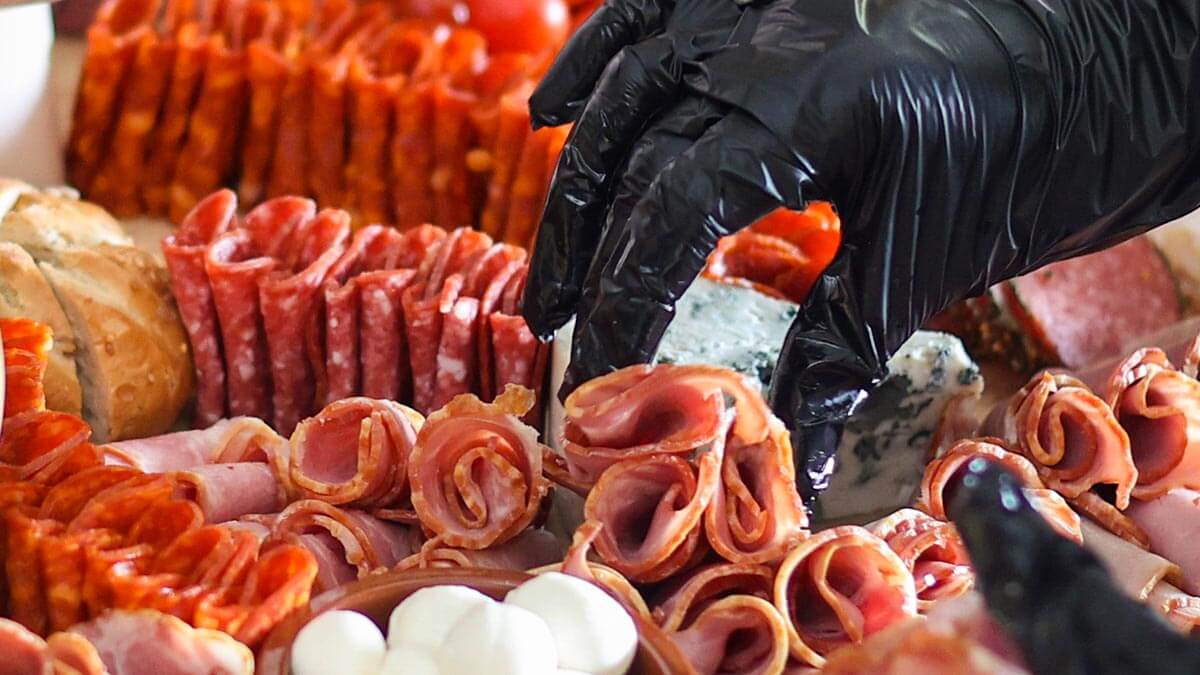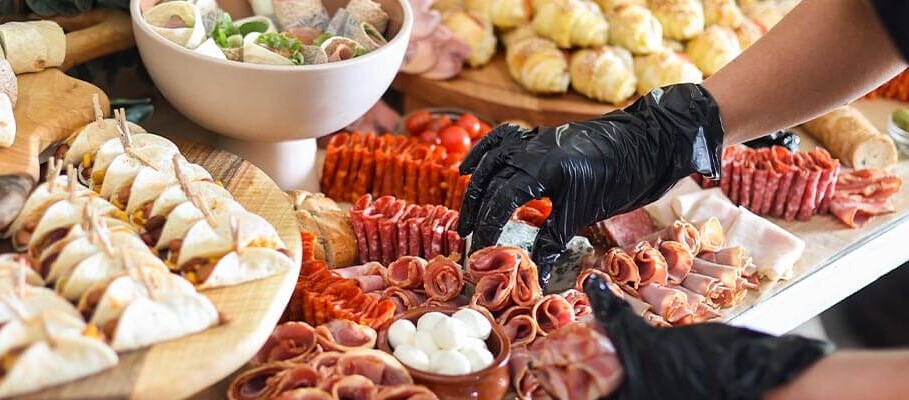Table of Contents
- The Rise of Bespoke Catering Services in Restaurants
- The Benefits of Customization for Restaurant Clients
- Crafting Unique Menus: The Bespoke Catering Process for Restaurants
- Brand Integration and the Bespoke Experience in Restaurants
- Bespoke Catering Services: Addressing Dietary Needs and Preferences
- Technology's Role in Streamlining Bespoke Catering for Restaurants
- The Financial Advantages of Offering Bespoke Catering in Restaurants
- Marketing and Selling Bespoke Catering Services
- Pro Tip: Building Long-Term Relationships through Bespoke Catering
- The Future of Bespoke Catering Services and Restaurants
- Conclusion
1. The Rise of Bespoke Catering Services in Restaurants
The demand for personalized experiences is reshaping various industries, and the food service sector is no exception. Restaurants are increasingly recognizing the value of offering bespoke catering services as a way to stand out in a competitive market. This trend is driven by a shift in consumer preferences, with clients seeking more than just a meal; they desire a memorable culinary journey that reflects their individual tastes and the unique character of their events. Restaurant supply chains are adapting to meet this growing demand for customized solutions, and restaurant suppliers are playing a critical role in providing the diverse range of high-quality ingredients needed to support these offerings. This collaborative effort within the industry is elevating the overall standard of event catering.
This evolution towards customization is not just a fad but a fundamental change in how restaurants approach their service offerings. Bespoke catering services allow establishments to showcase their culinary expertise and creativity, crafting menus that are as unique as the events they serve. From intimate gatherings to large-scale corporate functions, the ability to tailor every aspect of the dining experience is becoming a key differentiator. As this trend continues to gain momentum, it's clear that restaurants that embrace bespoke catering are positioning themselves for long-term success. Moreover, the role of restaurant suppliers has become more pivotal as they work closely with restaurants to ensure a seamless supply of specialized ingredients and products, maintaining the quality and integrity of these tailored experiences.
Traditional catering often involves selecting from a set menu with limited options for modification. Bespoke catering services, however, take a completely different approach. It's about creating a unique culinary experience from the ground up, tailored to the specific needs and preferences of each client. This means that restaurants offering these services need to be agile, creative, and highly responsive to individual requests. The collaboration with restaurant suppliers is critical here, ensuring that even the most unusual or specific ingredient requests can be accommodated, making each event truly one-of-a-kind.
2. The Benefits of Customization for Restaurant Clients
For clients, the advantages of bespoke catering services are numerous. The primary benefit is the ability to have a menu designed specifically for their event, reflecting their personal tastes, dietary needs, and the overall theme or purpose of the gathering. This level of customization ensures that the food becomes an integral part of the event's narrative, enhancing the overall experience for guests. For B2B clients, such as corporations hosting events, this translates into an opportunity to reinforce their brand identity and values through carefully curated culinary offerings provided by partnering restaurants.
Restaurants that excel in bespoke catering services often see increased customer satisfaction and loyalty. When clients feel that their needs are understood and catered to, they are more likely to return for future events and recommend the restaurant to others. This positive word-of-mouth is invaluable in the B2B world, where reputation and relationships are paramount. By working closely with reliable restaurant suppliers, establishments can ensure they have access to the freshest and highest-quality ingredients, further enhancing the client's experience and satisfaction. This attention to detail not only satisfies clients but also boosts the restaurant's reputation as a provider of exceptional, personalized service.
Furthermore, customization can lead to more efficient use of resources and reduced waste. Since menus are planned according to the exact number of guests and their preferences, restaurants can optimize their ordering and preparation processes. This efficiency can contribute to cost savings, which can be passed on to the client or reinvested in other areas of the business. This is a significant advantage for B2B clients, who often operate on strict budgets and appreciate the cost-effectiveness of well-planned events. Restaurant supply chains benefit from this efficiency as well, as more accurate forecasting reduces overstocking and waste at all levels.
3. Crafting Unique Menus: The Bespoke Catering Process for Restaurants
The process of creating a bespoke catering menu is a collaborative effort between the restaurant and the client. It typically begins with an in-depth consultation where the client's vision, preferences, dietary restrictions, and event details are discussed. Restaurants offering bespoke catering services need to have skilled chefs and event planners who can translate these details into a cohesive and exciting menu. This initial meeting is crucial for setting the tone and ensuring that both parties have a clear understanding of the expectations. This collaborative approach ensures that the final menu truly reflects the client’s vision and the event's theme.
Following the initial consultation, the restaurant's culinary team begins developing menu options. This may involve creating new dishes or adapting existing ones to fit the client's needs. Restaurant suppliers play a crucial role in this stage, providing the necessary ingredients and ensuring their quality and availability. The ability to source unique or specialized items can be a significant differentiator for restaurants offering bespoke catering services. For example, a client might request a specific type of organic produce or a rare ingredient that is not commonly used.
Once the menu is finalized, the restaurant works closely with the client to plan the presentation and service style. This includes selecting appropriate tableware, linens, and decor to complement the food and enhance the overall dining experience. Attention to detail is paramount in bespoke catering, as every element contributes to the overall impression. The seamless execution of these details can significantly elevate the event, making it memorable for all attendees. For instance, themed serving platters or custom-designed serving stations can add a unique touch that aligns with the client's brand or event theme.
4. Brand Integration and the Bespoke Experience in Restaurants
For corporate events, bespoke catering services offer a unique opportunity for brand integration. Restaurants can work with B2B clients to incorporate their brand elements into the menu and presentation. This could involve creating dishes that reflect the company's colors, using branded serving ware, or even developing signature cocktails named after the company or its products. Such thoughtful touches can significantly enhance brand visibility and create a lasting impression on guests. Restaurant supply chains can support these initiatives by providing customized or branded items, further enhancing the cohesiveness of the event.
Brand integration in bespoke catering goes beyond mere aesthetics. It's about creating a cohesive experience that aligns with the company's values and messaging. For example, a company committed to sustainability might choose to work with a restaurant that sources local, organic ingredients and emphasizes eco-friendly practices. This alignment reinforces the company's brand identity and demonstrates its commitment to its stated values. Restaurant suppliers that offer sustainable and ethically sourced products are invaluable partners in these efforts, helping restaurants deliver on their clients' brand promises.
5. Bespoke Catering Services: Addressing Dietary Needs and Preferences
One of the most significant advantages of bespoke catering services is the ability to accommodate a wide range of dietary needs and preferences. In today's diverse society, events often include guests with various dietary restrictions, such as vegetarian, vegan, gluten-free, or specific allergies. Restaurants offering bespoke catering can create menus that cater to these needs, ensuring that every guest has a safe and enjoyable dining experience. This inclusivity is highly valued by B2B clients, who want to ensure that all their guests feel welcome and accommodated.
Accommodating dietary needs requires careful planning and attention to detail. Restaurants need to have a thorough understanding of different dietary restrictions and the ingredients that need to be avoided. Restaurant suppliers play a crucial role in providing accurate information about their products and ensuring that there is no cross-contamination during handling and processing. This level of diligence is essential for building trust with clients and ensuring the safety of their guests. Cross-contamination can be a serious concern, especially for guests with severe allergies, so meticulous handling and preparation are critical.
Beyond simply avoiding certain ingredients, bespoke catering services can also offer creative and delicious alternatives that cater to specific dietary needs without compromising on flavor or presentation. For example, a vegan guest might be served a beautifully crafted plant-based dish that is just as appealing as the non-vegan options. This attention to detail demonstrates the restaurant's commitment to providing an exceptional dining experience for every guest, regardless of their dietary restrictions. Restaurant supply chains are evolving to include a wider variety of specialty products, making it easier for restaurants to meet these diverse needs.

6. Technology's Role in Streamlining Bespoke Catering for Restaurants
Technology is playing an increasingly important role in the bespoke catering process. From online ordering platforms to sophisticated inventory management systems, digital tools are helping restaurants streamline their operations and improve the customer experience. Restaurant supply chains are also leveraging technology to enhance efficiency and transparency, making it easier for restaurants to source and manage their ingredients.
For example, many restaurants now offer online platforms where clients can browse menu options, customize their orders, and communicate their preferences directly to the culinary team. These platforms can also integrate with inventory management systems, allowing restaurants to track ingredient usage, manage stock levels, and place orders with restaurant suppliers more efficiently. This seamless flow of information helps reduce waste, minimize errors, and ensure that all necessary ingredients are available when needed.
Furthermore, technology can facilitate better communication between restaurants, clients, and restaurant suppliers. Real-time updates on order status, delivery schedules, and ingredient availability can be shared instantly, allowing for greater transparency and collaboration. This enhanced communication can help prevent misunderstandings, resolve issues quickly, and ensure that all parties are aligned throughout the bespoke catering process. For B2B clients, this level of transparency and efficiency is crucial for managing complex events with multiple stakeholders.
7. The Financial Advantages of Offering Bespoke Catering in Restaurants
Offering bespoke catering services can have significant financial advantages for restaurants. By providing a premium, customized service, restaurants can often command higher prices than they would for standard catering options. This increased revenue can contribute to improved profitability and a stronger bottom line. Additionally, the ability to attract high-value B2B clients can lead to lucrative long-term relationships and repeat business. Restaurant supply chains also benefit from this increased demand for premium services, as it drives higher sales volumes and creates opportunities for growth.
Moreover, bespoke catering services can help restaurants differentiate themselves in a crowded market. By offering a unique and highly personalized service, they can attract clients who are willing to pay a premium for quality and exclusivity. This differentiation can be a powerful marketing tool, helping restaurants build a strong brand reputation and attract a loyal customer base. This, in turn, can lead to higher customer lifetime value and sustained business growth. As the demand for unique dining experiences grows, restaurants that master bespoke catering are well-positioned to capitalize on this trend.
Request a consultation with our team and discover how to effectively promote your catering products on our platform.

8. Marketing and Selling Bespoke Catering Services
Effectively marketing and selling bespoke catering services requires a strategic approach that highlights the unique value proposition of customization. Restaurants should focus on showcasing their culinary expertise, their ability to accommodate diverse needs, and their commitment to creating memorable experiences. Building strong relationships with restaurant suppliers can also be a selling point, as it demonstrates a commitment to quality and reliability.
One effective marketing tactic is to create case studies or testimonials that showcase successful bespoke catering events. These can be shared on the restaurant's website, social media channels, and other marketing materials. Highlighting positive client experiences can build trust and credibility, encouraging potential clients to choose the restaurant for their events. Visual content, such as high-quality photos and videos of beautifully presented dishes and event setups, can also be highly effective in capturing attention and conveying the value of bespoke catering.
Another important aspect of marketing bespoke catering services is to target the right audience. B2B clients, such as event planners, corporate event managers, and wedding planners, are often key decision-makers for catering services. Restaurants should develop targeted marketing campaigns that reach these professionals through industry events, online advertising, and direct outreach. Building relationships with these key influencers can lead to valuable referrals and long-term business opportunities. Networking within industry associations and attending trade shows can also provide valuable opportunities to connect with potential clients.
9. Pro Tip: Building Long-Term Relationships through Bespoke Catering
- Exceed Expectations: Consistently go above and beyond to surpass your B2B clients' expectations with your bespoke catering services
- Dedicated Account Manager: Assign a dedicated account manager who takes the time to understand each client's specific business, needs, and preferences.
- Anticipate Needs: The account manager should proactively anticipate client needs, offering solutions and suggestions before they are even requested.
- Feedback for Improvement: Use feedback to identify areas for improvement and refine your services.
- Become a Trusted Partner: Position your restaurant as a trusted partner for all their catering needs, building a strong, long-lasting relationship.
- Tailor Services: Understand your clients' long-term goals and tailor your bespoke catering services to support their growth and success.
- Involve Restaurant Suppliers: Engage your restaurant supply partners in your loyalty programs by having them offer exclusive deals or products to your valued clients.
- Network of Relationships: Create a network of strong, long-lasting business relationships among your restaurant, clients, and suppliers.
Get tailored quotes from catering suppliers that match your specific requirements. Start now by using our "Request for Quotes" page.

10. The Future of Bespoke Catering Services and Restaurants
The future of bespoke catering services in restaurants looks promising, as the demand for personalized experiences continues to grow. Restaurants that embrace this trend and invest in developing their capabilities will be well-positioned to thrive in the evolving food service landscape. Technology will continue to play a crucial role, enabling greater efficiency, customization, and collaboration across the restaurant supply chain. As consumer preferences evolve, restaurants that can adapt and innovate will be the ones that succeed.
Moreover, sustainability and ethical sourcing are likely to become even more important considerations for clients. Restaurants that prioritize these values and work with restaurant suppliers who share this commitment will be better positioned to attract and retain clients who value these principles. This focus on sustainability can also lead to cost savings and operational efficiencies, further enhancing the financial benefits of offering bespoke catering services. The industry is moving towards a more conscious and responsible approach, and restaurants that lead in this area will undoubtedly reap the rewards.
11. Conclusion
Bespoke catering services offer a powerful way for restaurants to elevate events, differentiate themselves, and build strong relationships with B2B clients. By focusing on customization, quality, and collaboration, restaurants can create unique culinary experiences that leave a lasting impression. The benefits of this approach extend beyond increased revenue, encompassing brand building, customer loyalty, and operational efficiency.
As the demand for personalized experiences continues to grow, restaurants that master the art of bespoke catering will be well-equipped to thrive in the competitive food service industry. This trend represents a significant opportunity for restaurants to innovate and redefine their role in the event planning landscape.
Discover more articles about food topics on our ep website!
Glass Food Storage Containers for supermarkets
Enhance Customer Experience with Innovative Restaurant Packaging
Advancing Market Potential with Plant-Based Food Innovations
For more information about food service, feel free to read the paper from ScienceDirect.
Find catering products for your Project!
ArDelSan Packaging, a Turkey-based company, provides sustainable and high-quality paper packaging solutions for various sectors, including cosmetics, food, and pharmaceuticals, offering a wide range of options from retail and e-commerce packaging to gift, food, and die-cut packaging, with a focus on customer satisfaction and eco-friendly practices
Suport Horeca SRL manufactures high-quality, durable stainless steel kitchen equipment, including tables, extraction hoods, sinks, and cabinets, designed for commercial and industrial use, prioritizing quality, hygiene, and customer satisfaction.
Cawé, a Strasbourg-based French company founded in 1931, provides customized professional clothing, PPE, and services for various sectors, emphasizing quality, traceability, and sustainable development.
C Catering & Bar Supplies is a UK-based catering equipment distributor that has been supplying a wide range of products to the food service industry since 2004.
Caterline, a UK manufacturer, produces a range of recyclable and reusable plastic catering disposables, including platters, salad bowls, and the versatile Caterbox range, for restaurants, shops, and caterers.
Italcatering, founded in 1990 in Erbusco, Italy, provides comprehensive catering services, specializing in meal preparation and delivery for a wide range of clients, including schools, companies, elderly care facilities, and private individuals, primarily in the Brescia and Bergamo provinces.

